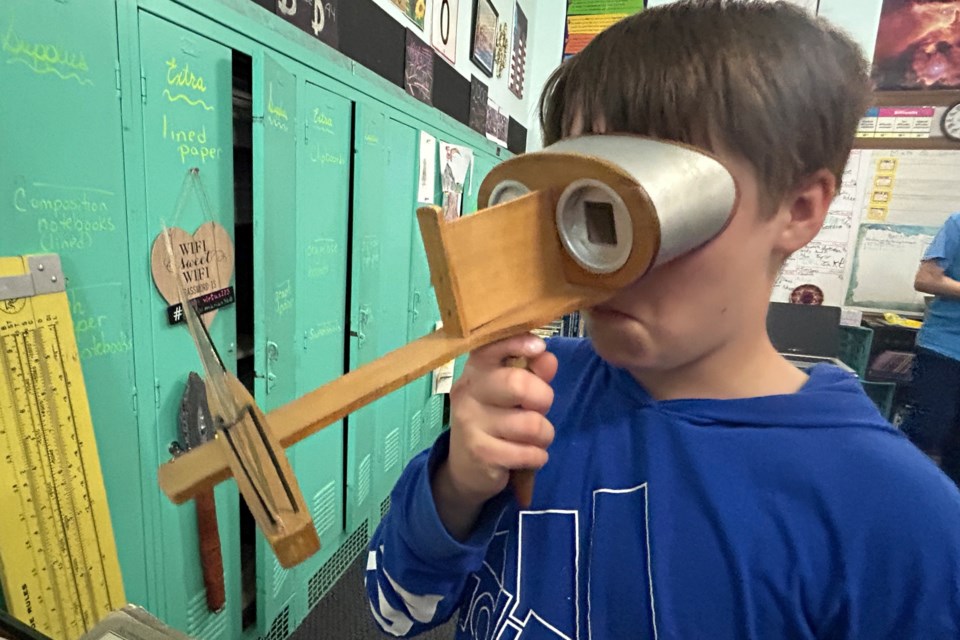Melissa Pianosi makes sure history is not forgotten to her 7th and 8th grade students she teaches at St. Mary's Catholic School.
There are some in today's world who want to erase part of history by doing things like tearing down monuments or renaming buildings.
However, Pianosi feels, that despite history having bad parts in it, the entire story must be told.
"I don't want my students to only know one side of the story. History is a series of events with millions of characters. Most of those people are doing things for what they consider to be valid reasons. If we just teach that some things are good and some things are bad without any context, then it's easy to think that 'because I'm a good person, my choices must be good' and not realize that we are repeating past mistakes. It's only in understanding both sides of a conflict, acknowledging that bad things have happened as well as amazingly good things, and recognizing the relationship between all events that we can actually influence our future. I want my students to really understand what made history," Pianosi said.
To make the students understand all aspects of history, she has dedicated one day a month to "Decade Day".
This school year they learned about the 1860s, 1890s, 1900s, 1910s, 1930s, 1940s, 1990s, and 2000s.
"For one day we focus almost exclusively on that decade, but for the rest of the month, the hands-on museum is up, students can bring in their own artifacts to show each other and discuss, and we refer back to events we've learned about. I especially like when personal artifacts like recordings of soldiers, old report cards, photographs, and scrapbooks can be brought in, because it helps bring the human element back into history for them," Pianosi continued.
This hands-on experience with "Decades Day" gets the students more involved in the finer details of history.
"I was actually very impressed and surprised by their response to Decade Day. When I first started, I wasn't sure if they would find it interesting, but they were actually quite excited about it. They each have specific interests, and what I've found is that students who are fascinated by a certain topic will then look up information about that topic in each decade, giving us a range of history to discuss. The best part is that it allows us to talk about the moral implications of events. We also can use history from previous decades to discuss cause-and-effect relationships between events. By packaging things into decades, my students have been doing a great job connecting ideas with history being a plot line of a long story rather than just a list of facts to be memorized. They absorb so much in middle school, and I'm thrilled that so much of what they are absorbing and understanding is their history," Pianosi said.
And there is nothing better than closing up a textbook and learning about a subject hands-on.
"I feel like it's important for them to experience history in a more natural way than just reading things in a textbook. I remember experiencing history by only reading, and everything felt distant and unreal. My goal is to help students actually realize that historical people were real people who worried about fashion and food and events just like they do. By breaking time down to a decade, we can just analyze and discuss how fashion changes from start to finish and why those changes may have come about. We can discuss the foods they ate and how events, like rationing, may impact those foods. We also discuss regular historical events that they know of, but also fun facts and information about our own families at that time. It allows us to sort of piece together a mosaic of life in that era, so students can really get a taste of the decade," Pianosi continued. "While each decade has a special meaning, the students generally enjoy the decades where it is easier to find costumes to wear and where they can bring artifacts that their parents owned. The 1920s were fun because they learned slang from the twenties like 'the bee's knees,' which they found hilarious."
In late April, for 1910s decade day, the students talked about WWI and many other conflicts and issues.
8th-grade student, Elizabeth, found interest in a book called Classroom Management.
"It's a book about what teachers should do on how to reprimand students who misbehaved and basically how to beat them up," Elizabeth chuckled.



